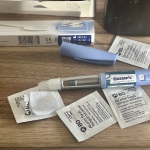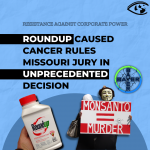US: F.D.A. Puts Restrictions on Guidant
The Food and Drug Administration yesterday released a warning letter it sent to the Guidant Corporation, restricting the ability of the company to win approval for some new medical products. In the letter, sent a week ago, the agency said Guidant, the heart device maker, had not fully responded to its concerns about manufacturing procedures at the company's biggest plant.
The F.D.A. said that in parts of the company's operations, Guidant did not have adequate controls, procedures and methods to validate product improvements it was making. The agency gave Guidant 15 days to respond. Along with suspending some new product approvals, the F.D.A. said it would no longer issue new export permits for devices made at the company's plant in St. Paul.
The restrictions could put a severe crimp on the company if they last more than a few months, said Bruce M. Nudell, an analyst at Sanford C. Bernstein & Company, the investment and research firm. "It cripples your future product development as long as it is in place," he said. "We didn't expect this, and it's problematic. The question is, How long can it last?"
The F.D.A. letter comes during a tough period for Guidant, which is based in Indianapolis. On Friday, the company lowered its sales and profit forecast, saying that demand for its devices had declined after product recalls. Also last week, documents filed in a Texas lawsuit showed that Guidant officials had projected that some patients might die because of short circuits in one of the company's implantable defibrillators. But the documents also suggest that the company did not deem the unit's overall failure rate high enough to warrant public disclosure.
Guidant's stock fell $2.29, or 3.4 percent, to $64.69, yesterday. After striking a deal late last year to be sold for $76 a share to Johnson & Johnson, the big health care products company based in New Brunswick, N.J., Guidant's stock has risen and fallen in rapid succession on optimism about its merger on the one hand, and mounting worries about recalls and investigations on the other. The stock is down 10 percent for the year.
Guidant agreed last month to reduce its selling price by $4 billion, to $21.5 billion, after Johnson & Johnson threatened to walk away from the deal. Earlier this month, it became the target of a bidding war when Boston Scientific, a large medical supplier based in Natick, Mass., offered to pay $25 billion for the company.
In a statement, Guidant said it would "promptly respond to the warning letter and believed that it could fully address the concerns of the F.D.A. without a material impact to its business." Guidant said it had already completed 90 percent of the commitments it made after the F.D.A.'s initial inspection in September resulted in 15 official "observations" requiring action.
A spokesman for Johnson & Johnson, Jeffrey J. Leebaw, declined to comment on the letter yesterday.
But a spokesman for Boston Scientific, Paul Donovan, said the letter would not stop or slow its assessment of Guidant, which Boston Scientific has said it will complete by the end of the year. "We continue to move forward with our due diligence with the goal of reaching a definitive agreement with Guidant," Mr. Donovan said.
The latest warning letter, which was dated Dec. 22, raised eight specific deficiencies and threatened more severe penalties, like seizures, injunctions and fines, if the company did not promptly fix the problems.
The violations "may be symptomatic of serious underlying problems in your firm's manufacturing and quality assurance systems," the letter said.
An F.D.A. freeze that lasts a few months would not hurt Guidant much, but the company could lose ground to rivals in its fiercely competitive industry if it is not allowed to introduce new products for a year or more, Mr. Nudell, the analyst, said. Guidant and other heart device makers, for instance, are updating pacemakers and implantable defibrillators so that they are able to send signals alerting physicians to problems.
Johnson & Johnson has experience with an F.D.A. warning letter. Cordis, a Johnson & Johnson subsidiary, received an F.D.A. warning letter in April 2004, concerning its record-keeping, processing of complaints and production of its Cypher stents, which are drug-coated metal sleeves that prop open coronary arteries after blockages have been cleared. The warning covered practices at three sites and restricted expansion and introduction of new products.
Those restrictions have hampered Cordis, which was forced to sit on the sidelines while Guidant and Abbott Laboratories were approved to enter the hot market for stents that prop open the carotid arteries of the neck. Cordis has been saying for months that it believes it has responded to all of the agency's concerns, but it is still awaiting a ruling from the F.D.A. that it is satisfied.
Barnaby J. Feder and Barry Meier contributed reporting for this article.
- 122 Pharmaceuticals



